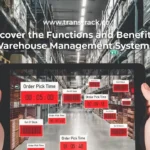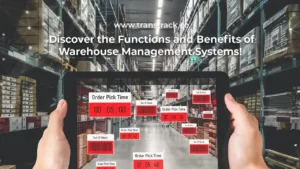Understand the Aspects, Factors, and Types of Distribution Management!
Posted on October 3, 2023 by Nur Wachda Mihmidati

Distribution management is a process that involves planning, organizing, controlling, and executing the distribution or delivery of products or services from manufacturers or suppliers to end customers or consumers. The objective of this process is to ensure that the produced products or services are available at the right location, in sufficient quantities, at the right time, with cost-efficiency, and can reach the end customers or consumers effectively.
Distribution management encompasses various activities, such as transportation, warehousing, inventory management, packaging, and physical distribution. Those things include decision-making regarding route planning, transportation selection, warehouse network arrangement, quality control, and supply chain management.
With effective processes, a company can enhance its operational efficiency, reduce distribution costs, increase customer satisfaction, and expand its market share. Conversely, inefficiency in the process can lead to inventory shortages, delivery delays, uncontrollable expenses, and even the loss of customers.
Aspects of Distribution Management in Business
Distribution Management plays a crucial role in businesses because its management can significantly impact a company’s success in marketing the products or services it produces. Some aspects of this management to be considered in the industry include:
Transportation and Logistics
The aspects of transportation and logistics are essential in distribution management. This encompasses choosing the correct mode of transportation, scheduling deliveries, managing inventory, and handling customer claims or complaints.
Warehousing
Warehouse management includes selecting warehouse locations, designing and managing inventory, arranging material flows, and maintaining warehouse facilities. With effective warehouse management, a company can ensure that products are available at the right place and in sufficient quantities.
Technology and Information
Technology and information also play a crucial role in distribution management. Using warehouse and delivery management information systems, such as barcoding and RFID, can help improve efficiency and accuracy in managing inventory and deliveries.
Marketing and Sales
Distribution management is closely related to marketing and sales activities. Companies must ensure that their products are available at the right location and time to meet customer demand.
Supply Chain
Distribution management also involves managing the supply chain or supply chain management. This includes supplier selection and management, establishing relationships with business partners, and enhancing overall supply chain efficiency and effectiveness.
By effectively managing these aspects, a company can improve efficiency, reduce costs, enhance customer satisfaction, and strengthen its market position in a competitive industry.
Why Is Distribution Management Important for Businesses?
Distribution management is crucial for businesses due to several significant benefits, including:
Ensuring Product Availability in the Market
Distribution management ensures that the products produced by a company are available in the market at the right time and in sufficient quantities. This way, the company can meet customer demand and enhance customer satisfaction.
Improving Operational Efficiency
Distribution management allows companies to optimize the flow of products from manufacturers to customers efficiently and effectively. Consequently, operational costs can be reduced, and operational efficiency can be improved.
Reducing Costs
Distribution management enables companies to reduce operational costs by optimizing resource usage and minimizing waste. This can enhance the company’s profitability.
Increasing Control Over the Supply Chain
Distribution management enables companies to have greater control over the supply chain and reduce risks associated with delivery delays, inventory shortages, or delivery failures that could damage the company’s reputation.
Enhancing Delivery Speed
Distribution management allows companies to optimize the delivery process and reduce delivery times, thereby improving delivery speed and customer satisfaction.
In a competitive industry, distribution management can be a crucial factor in enhancing a company’s competitive advantage. With effective distribution management, a company can ensure that its products are available in the market at the right time, with cost-efficiency, and can reach customers effectively.
Factors Affecting Distribution Management
Distribution management is influenced by several factors, including:
Product Characteristics
Product characteristics such as size, weight, shape, and perishability can affect the choice of transportation mode, distribution flow, and warehouse location. Perishable products, for instance, require special handling and proper storage.
Distance and Geography
Distance and geography can influence the selection of transportation modes, distribution flow, and delivery times. The farther the distance, the more challenging and expensive it is to transport products.
Customer Needs
Customer needs influence market demand and preferences. This can affect warehouse locations, delivery schedules, and the customer services provided.
Cost and Efficiency
Cost and efficiency impact warehouse, transportation, and overall logistics management. The more efficient the distribution process, the lower the required costs and the higher the potential profits.
Technology
Technology affects how companies manage and optimize distribution processes. Warehouse and delivery management information systems, such as barcoding and RFID, can help improve efficiency and accuracy in managing inventory and deliveries.
Industry Competition
Industry competition can influence a company’s distribution strategy and the distribution channels chosen. Companies must consider the distribution strategies of competitors and strive to build a competitive advantage through effective processes.
In this process, companies must carefully consider these factors to choose the most appropriate and effective distribution strategy for their business.
Types of Distribution Management Strategies
There are several types of distribution management strategies that companies can choose from, including:
Intensive Distribution
Intensive distribution strategy is used when a company wants to market its products through many distribution channels and reach a broader market. This strategy is suitable for mass-produced products and typically involves many agents or third parties in distribution.
Exclusive Distribution
An exclusive distribution strategy is used when a company wants to restrict distribution channels and sell products only through specific or selected distribution channels or agents. This strategy is suitable for products with specific demand, and companies want to maintain brand quality and image.
Selective Distribution
Selective distribution strategy is a combination of intensive and exclusive distribution. Companies select a certain number of agents or distribution channels capable of selling products and meeting specific market needs.
Drop Shipping
Drop shipping strategy is used when a company ships products directly to customers without storing inventory in warehouses. This strategy is suitable for companies looking to reduce warehousing and product shipping costs.
Multi-channel Distribution
Multi-channel distribution strategy is used when a company uses multiple distribution channels to market its products, such as direct sales, physical stores, online stores, or online marketplaces. This strategy can increase product accessibility and enhance customer satisfaction.
Each distribution strategy has different advantages and disadvantages. Therefore, companies should choose the distribution strategy that best suits their business needs and the characteristics of the products they sell.
In managing distribution management, TransTRACK provides a Fleet Management System solution that can help companies optimize delivery and fleet monitoring. By using this solution, companies can manage and monitor their fleet in real time, track vehicle positions, measure driver performance, reduce operational costs, and improve delivery efficiency.
So, if you want to enhance distribution management performance in your company, TransTRACK is ready to assist you with a reliable and integrated Fleet Management System solution. Contact us now to get the best solution that fits your business needs.
Topic :
 Bahasa Indonesia
Bahasa Indonesia








